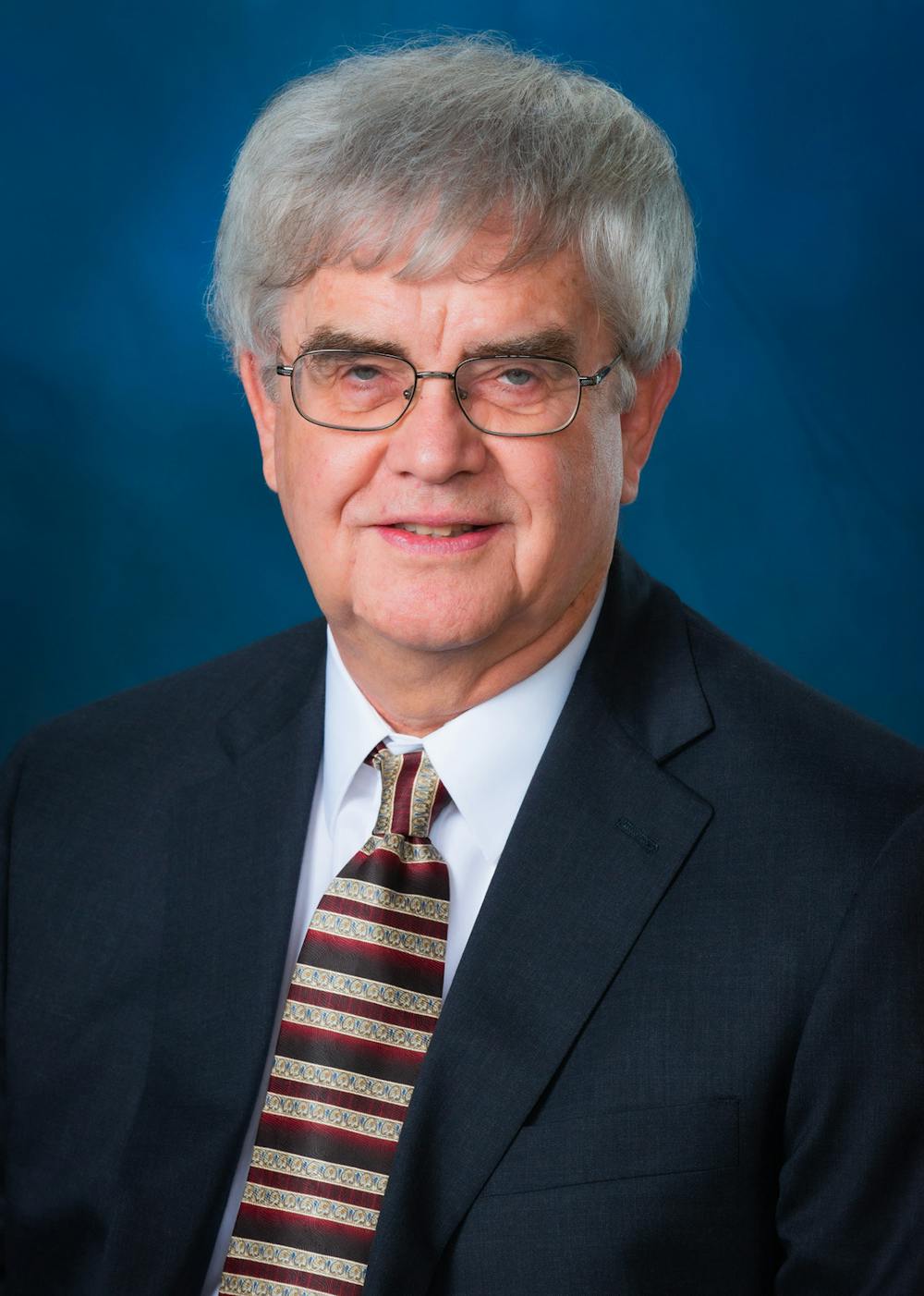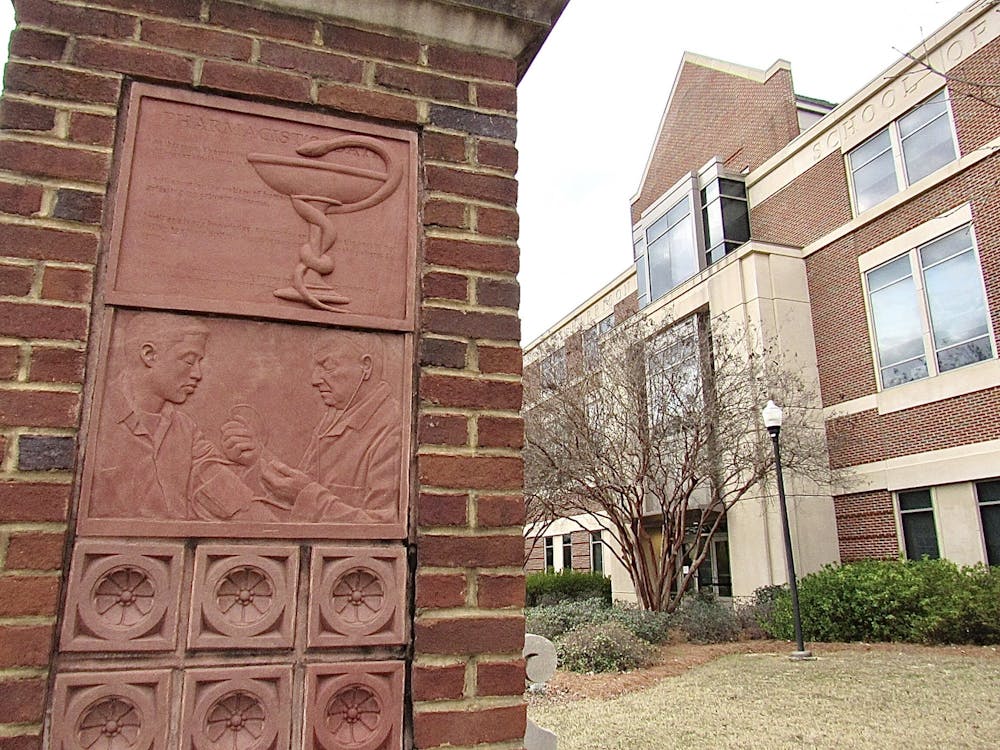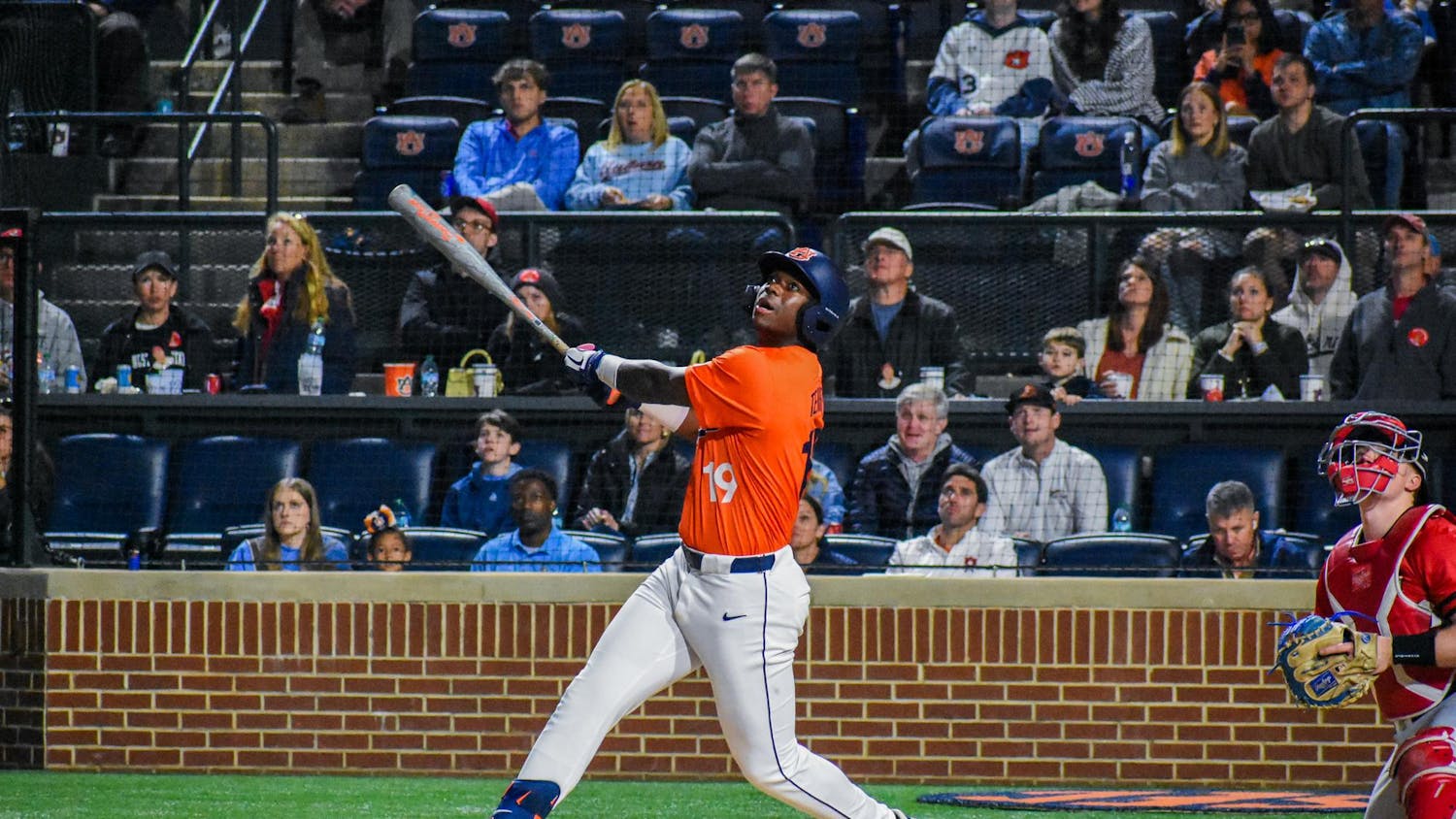During the Auburn and Ole Miss football game, Dr. Randall Clark, professor in the Harrison College of Pharmacy, walked onto the field to celebrate his 50th year on the Plains.
An achievement that has been a long time coming, he was excited to share his thoughts on the recognition.
"It was a neat experience. Obviously, I've waited 50 years to get to walk on the field," Clark said. "It was nice to get to go down [on the field] and walk around that close to the players, all the folks that were involved and stand next to the eagle."
Since joining the faculty in 1973, Clark has contributed extensive research to the fields of forensic and medicinal chemistry.
"We've worked a lot with the Alabama Department of Forensic Sciences just to be able to establish a partnership to be able to do the theoretical side, as well as the practical side," Clark said, explaining some of his work. "We've done research related to drugs for epilepsy, and it is something we've had a lot of success at, in terms of being able to achieve some of the things that might be coming along next in the world of drug chemistry."
While his work since being at Auburn is important, his work before is equally as significant. Throughout his professional history, Clark has held several positions, from an analytical toxicologist during his time at Georgia State Crime Lab to his endowed professorship at Auburn.

Portrait of Dr. Randall Clark, contributed by the Harrison College of Pharmacy
A meaningful experience from his career was his work in 1988 as a visiting professor at the University of Otago in Dunedin, New Zealand. Clark recalled some of his time spent there, speaking on the overall experience.
"It was a great experience. I guess at that point there was some level of isolation there because of the lack of the internet," Clark said. "It was an eye-opening experience in many personal ways, going and living somewhere for an extended period where you have to become emerged in the culture. It was a challenge."
While in New Zealand, Clark talked about the difference in the education system and the growth he gained from the experience.
"It was neat in terms of the personal growth [as] an individual, to go and teach students that had a different background and had done things, in terms of their preparation for going into pharmacy school, differently. Their system of education was based on the British model," Clark said.
While he has had plenty of experience and involvement both inside the Auburn world and outside of it, Clark wanted to share a piece of advice to students, whether they were a freshman just beginning their journey or a senior about to embark on the real world.
"It's okay to get an education while you work on that degree. Don't be afraid to branch out and think about things other than the precise, focused area that you came here to work on because there's lots of things you don't know really exist until you have a chance to sample certain types of courses. If you have a chance to do some enrichment sorts of things outside your chosen field, those are wonderful opportunities," Clark said.
With the extensive amount of time spent at Auburn, Clark has had the privilege of seeing things both develop and remain constant over the span of 50 years. When it comes to things that have changed, he said he didn't necessarily have a set answer.
"Student population has more than doubled, as have lots of things; the Walker building was built a little after I got here. Smoking was a common thing in the buildings and on campus. My first experience going to faculty meetings within the pharmacy program was a room filled with a bunch of chainsmokers and me. One of the most common things on the table during meetings was an ashtray," Clark said.
However, Clark recognized many aspects of the university have stayed the same, namely its focus on academics.
"The emphasis on quality education has stayed the most consistent from the first day I got here until today. I'm proud to be apart of an organization that emphasizes that kind of thing," Clark said.
With his time spent here, Clark has heard many Auburn chants and taken part in several Auburn traditions. His favorite, however, he holds near and dear to his heart.
"The Auburn Creed — I believe in it — was written by George Petrie to focus on Auburn things, but it is a much broader, more global philosophy that we believe in the work, education and respect," Clark said. "That's what I get from the words."
During his 50 years at Auburn, Clark has seen it all — from iconic football games to teaching countless students. He shared several of what he considered his fondest memories.
"I saw Elvis [Presley] in the basketball coliseum the first year we were here, I was present for the Kick Six and I watched lots of people graduate and go on and do great things in the world," Clark said. "Some of my graduate students have gone on to do really neat things."
With all of the events he has been present for and had a chance to experience, he still has some things he looks forward to, including the advancement of science and toward seeing his colleagues grow.
"I like that challenge of being able to compete successfully in the arena of scientific accomplishments," Clark said. "Meeting the new students that come each year and their excitement, that's important to me also, participating in their success in some small way."
Leaving Auburn students with one last piece of advice, Clark urged students to take a look at the bigger picture.
"Don't worry about trying to meet the minimum," Clark said. "Try to maximize your time here to gain as much experience and knowledge as you possibly can."
Do you like this story? The Plainsman doesn't accept money from tuition or student fees, and we don't charge a subscription fee. But you can donate to support The Plainsman.





